This website uses cookies so that we can provide you with the best user experience possible. Cookie information is stored in your browser and performs functions such as recognising you when you return to our website and helping our team to understand which sections of the website you find most interesting and useful.
Support truly
independent journalism
Our mission is to deliver unbiased, fact-based reporting that holds power to account and exposes the truth.
Whether $5 or $50, every contribution counts.
Support us to deliver journalism without an agenda.

Louise Thomas
Editor
Large parts of Europe are battling wildfires stoked by high temperatures, winds and a weeks-long drought. The extreme weather comes as tourists look to fly out on their summer holidays to countries such as Greece, Spain and Croatia.
European Union’s European Forest Fire Information System currently has a high risk of fire across much of Southern Europe.
At a stretch of land on the Greece-Bulgaria border, firefighters have had to rely on air support to douse the flames of a fire that has been burning low-lying vegetation since July 18.
Ground forces cannot reach the area because of land mines from past conflicts, said Greek fire service spokesman Vassilis Vathrakogiannis.
Firefighters and local authorities have used diggers to build fire break zones around villages, he said.
A fire has also broken out near the village of Svoronata on the Ionian island of Kefalonia in Greece.
The country has long struggled with wildfires caused by rising temperatures and sporadic rainfall that scientists link to climate change.
On the western side of mainland Europe, firefighters in Spain are also battling wildfires amid extreme heat. Hundreds of firefighters backed up by waterbomber aircraft sought to contain two wildfires that raged since Tuesday in eastern Spain.
A blaze in Benasau in the eastern region of Valencia forced emergency services to remove several hundred villagers from their homes as a precaution when it broke out in nearby hills. Firefighters said the “fire is evolving favourably” following all-night efforts.
Another one, in the province of Cuenca more inland, has burnt through more than 1,500 hectares of vegetation since Tuesday. Both blazes have been qualified as severe.
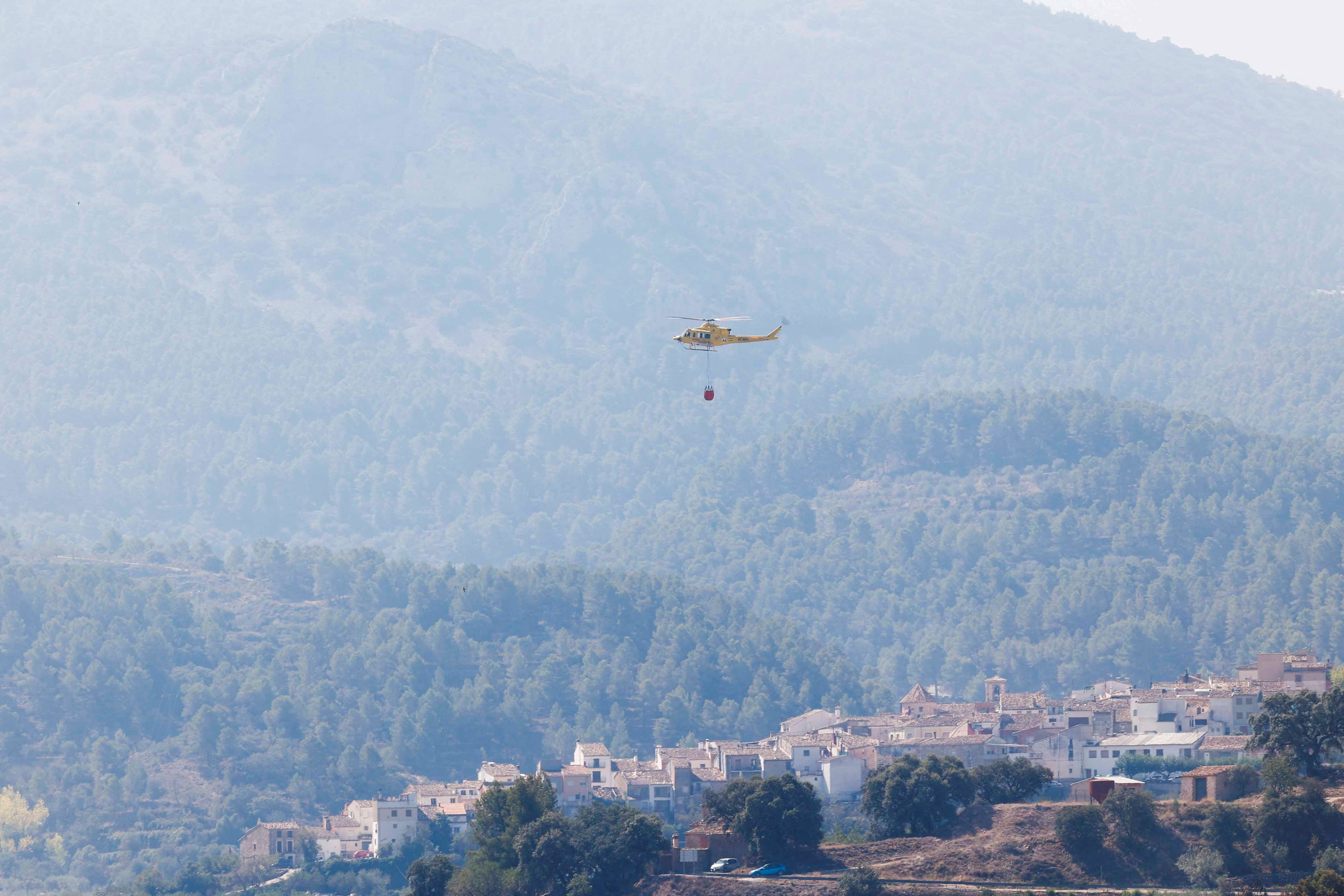
Weather service AEMET predicted maximum temperatures of 43-44 degrees Celsius in parts of the country on Wednesday, which is expected to be the peak day of a heatwave, while the interior ministry warned of very high or extreme risk of wildfires across Spain.
AEMET said that the Barcelona-Fabra observatory in the northeastern region of Catalonia registered an all-time high temperature of 40 C on Tuesday, beating its previous record of 39.8 C set in July 1982.
This is the third heatwave in Spain over the last two weeks.
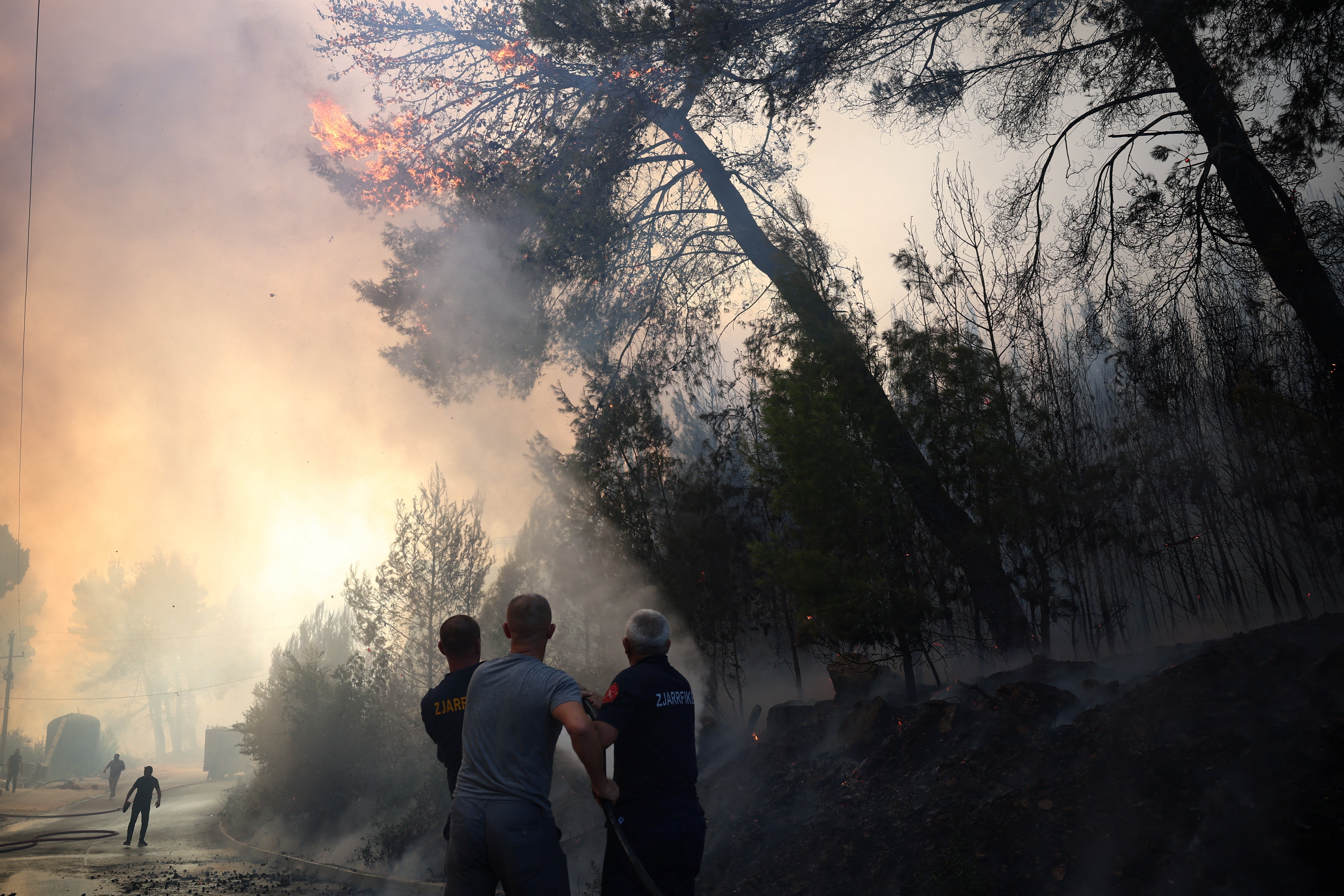
Meanwhile, firefighters in Croatia saying they have tackled the toughest day so far this season.
They contained a blaze near the coastal town of Tucepi, a local official told N1 TV. One firefighter was injured. A strong wind that blew throughout the night made it harder to combat the raging blaze stretching for several kilometers.
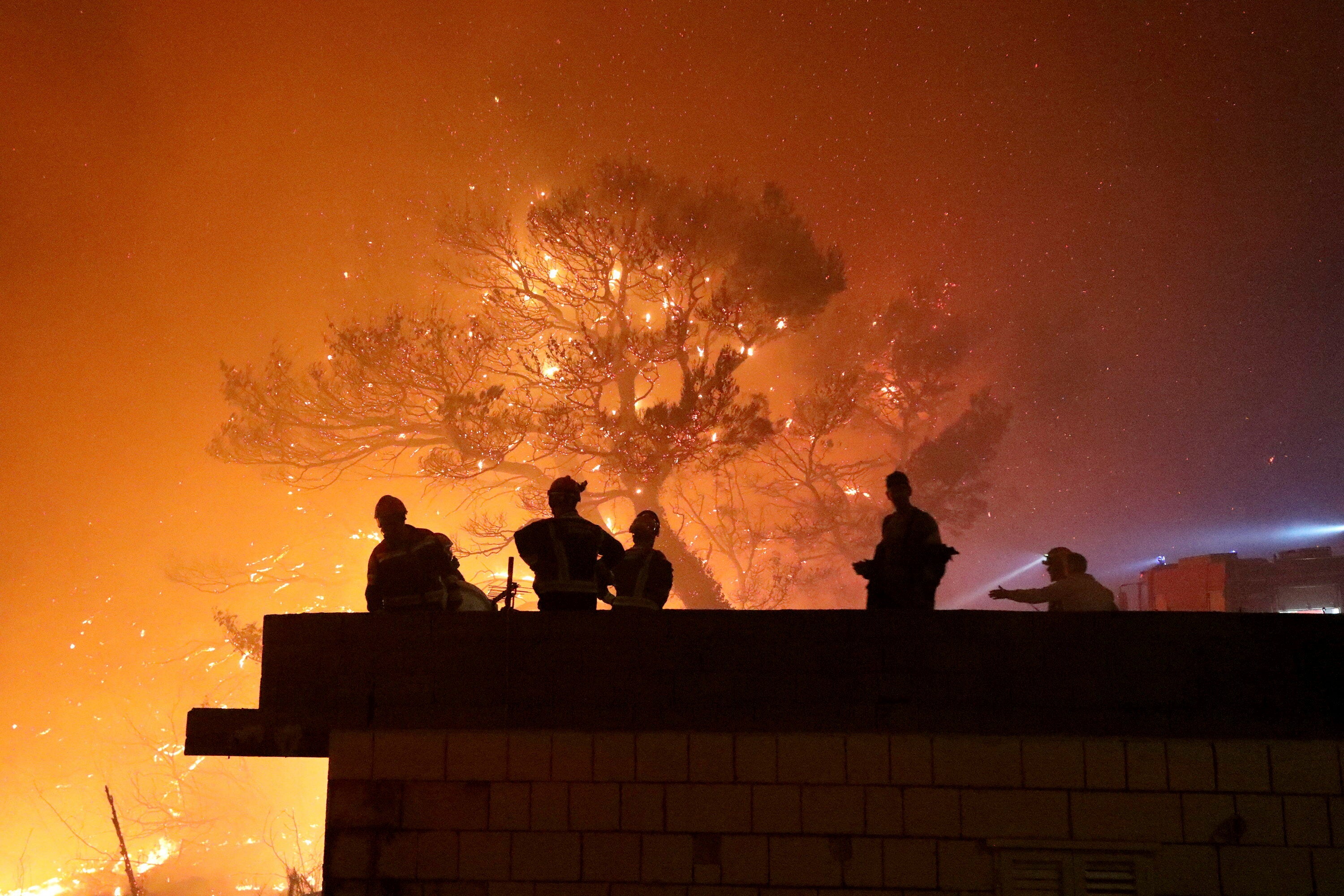
Croatian state broadcaster HRT said residents in the area went through a sleepless night, some had to evacuate their homes while power supplies were cut and several explosions could be heard, apparently from gas canisters. Photos from the scene showed a blazing skyline and firefighting planes flying over. Local official Ante Cobanic said he tried to help extinguish a small fire before it suddenly spread in the space of five minutes. “The speed was incredible,” he said.
Further north, near the town of Sibenik, firefighters struggled to prevent the blaze from reaching Krka National Park, a major tourist destination and a nature reserve known for its stunning waterfalls. The park remained open for visitors on Wednesday and thanked firefighters and residents for helping defend it.
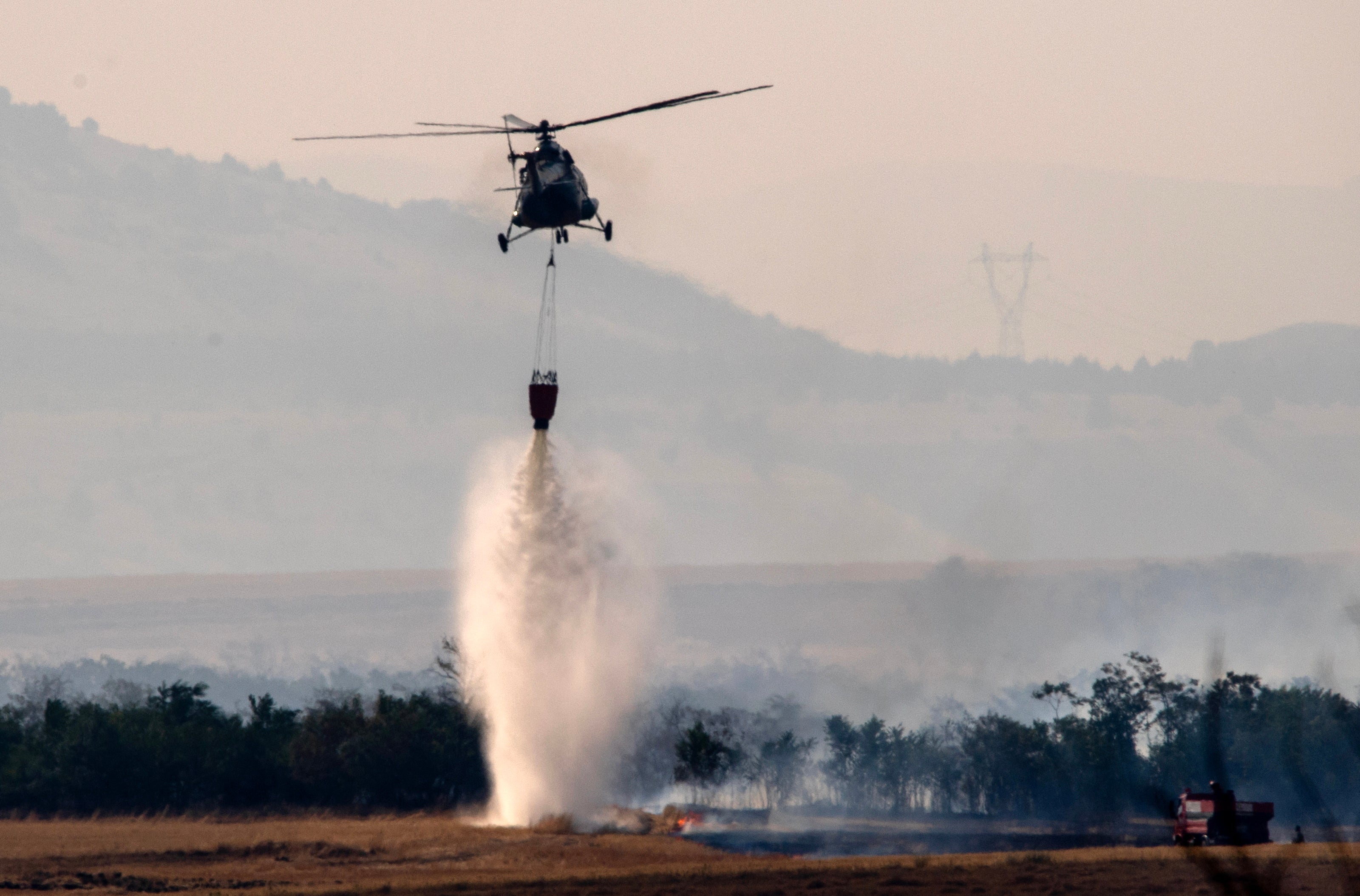
Firefighters in North Macedonia fought wildfires fanned by heavy winds for a third day on Wednesday. The last 24 hours saw a total of 66 wildfires erupting, authorities there said Wednesday, prompting calls for assistance from the international community.
One fire was spreading in the municipality of Negrevo near the Bulgarian border and another around Kumanovo near Serbia, said Goran Stojanovski at North Macedonia’s centre for crisis management.
“Because of the high temperatures, the vegetation is dry and the soil is very hot, which is making our work more difficult,” he said.
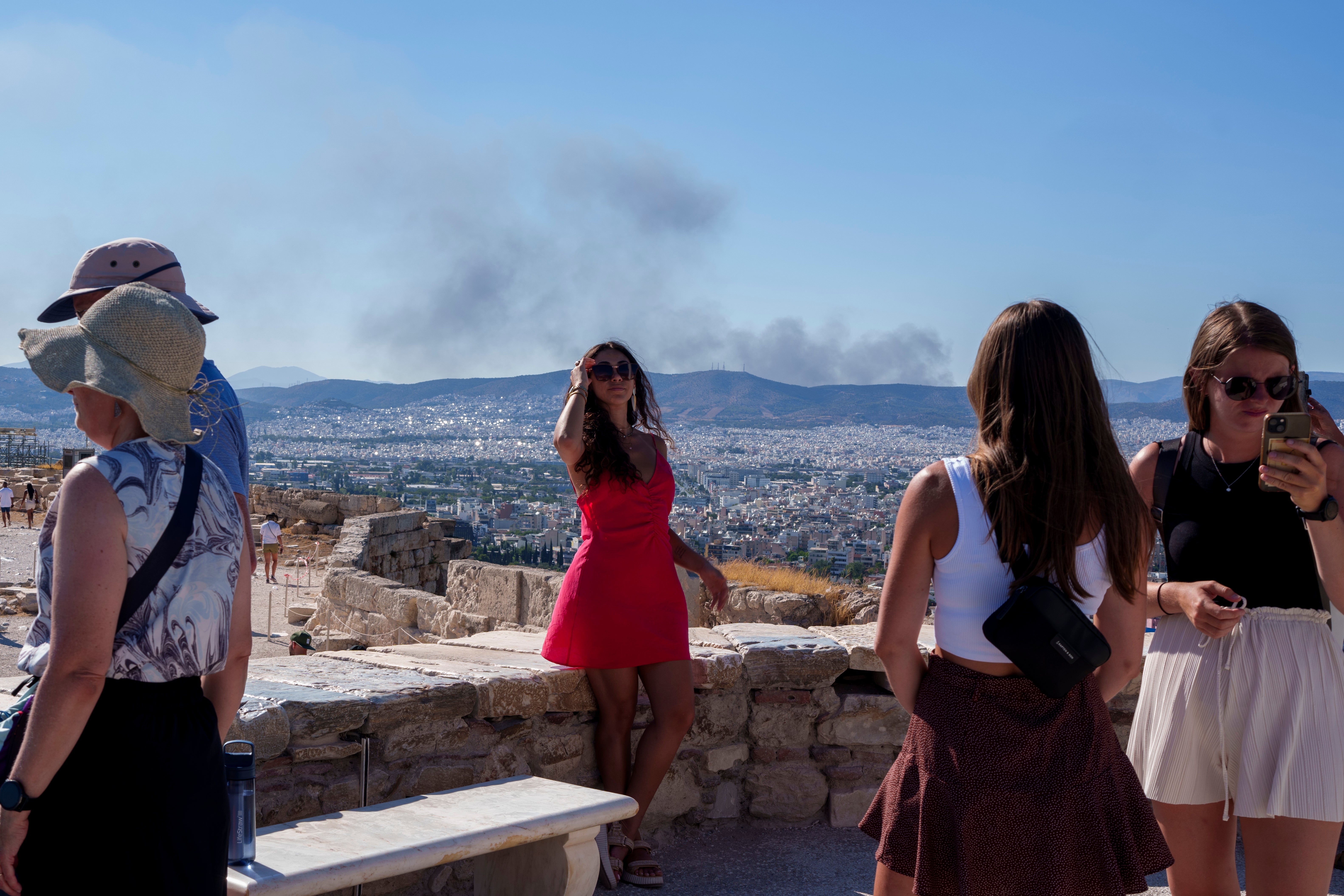
Roads, fields and houses were covered with smoke near the central town of Stip, 100 kilometres (62 miles) east of North Macedonia’s capital Skopje, a witness said. Fires earlier in the week burned dozens of homes and killed one elderly man.
A helicopter came from Serbia to help while Germany and Czech Republic have offered to provide aircraft.
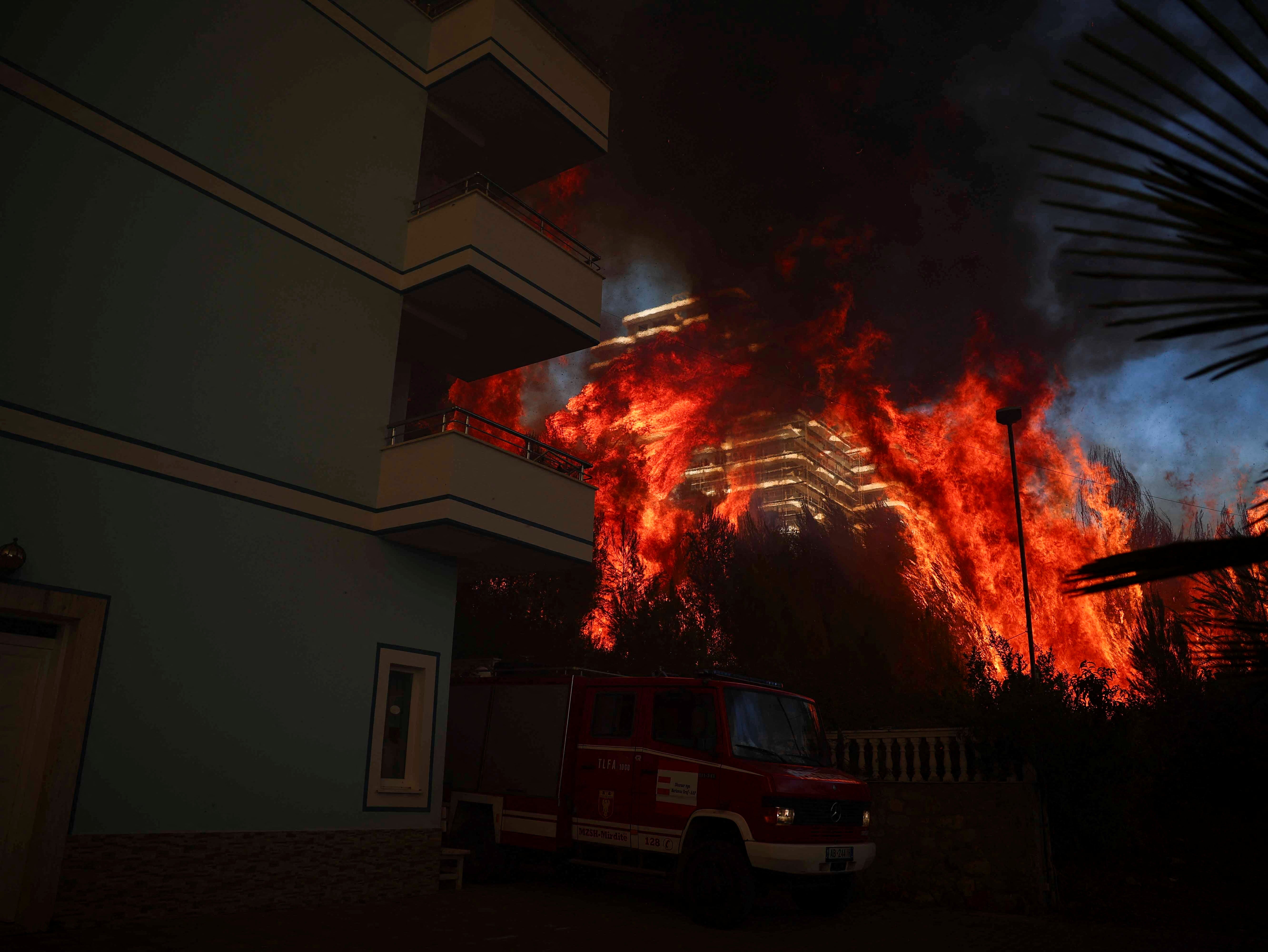
In neighbouring Albania, the coastal tourist town of Shengjin was evacuated on Tuesday as fires encroached, forcing some tourists to leave hastily in cars and buses. Fires were still burning there on Wednesday but appeared to be under control, a Reuters witness said.
Most of France was also under heat warnings Wednesday for the third consecutive day, with temperatures in Paris hitting 31 degrees Celsius (88 degrees Fahrenheit), Meteo France said.



 Africana55 Radio
Africana55 Radio 
